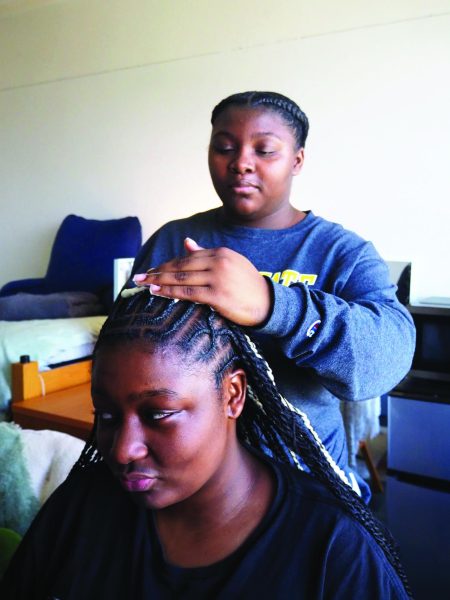EPS 300 is officially abolished
February 11, 2015
After eight years in the curriculum, Educated Perspective Seminar (EPS 300) officially came to an end on Jan. 16 after final approval from the Academic Policy committee and Dr. Michael Anderson, Vice President of Academic Affairs.
Last November, a proposal to abolish the Educated Perspective Seminar (EPS 300), was brought to the General Education Committee, cutting the total general education requirement from 44 hours to 41. In a ten to four vote, the committee approved the proposal.
EPS 300 was originally created to allow students to bring together skills learned in the other general education blocks in one final capstone class. Because the class was meant to implement multiple disciplines, EPS 300 became an assessment tool for the entire gen ed program.
Eventually, it became clear that in terms of assessment, EPS 300 wasn’t doing what it was supposed to do.
“Some people had well designed classes that I hope will be maintained,” Dr. Michael Anderson, Vice-President of Academic Affairs and the author of the proposal said. “The idea of having [a capstone] class is not bad. The part that’s problematic is that we were using it to assess the gen ed program.”
Before the proposal could be implemented, it had to pass through the General Education committee and Academic Policy committee, which makes sure the changes in curriculum are reflected in the course catalogue.
The General Education committee has a representative from each department on campus.
The idea of having a class that is the culmination of the entire general education program was appealing to many faculty members, but the ten to four vote to end EPS 300 showed that an overwhelming number of departments felt a change was needed.
“General education has to be a good experience for students and we have to insure it’s a good experience, so we have to assess gen ed just like we assess other programs,” Dr. Charles Parker, Business and Economics chair, said.
Though over 70 percent of the committee voted in favor of the proposal, there was still serious discussion regarding the caliber of classes EPS 300 created.
“The most passionate thing faculty were saying was, ‘man, these were good classes,’ and no one wants to lose those good classes,” Parker said.
With EPS 300 gone, however, there is a little more freedom for students. With three fewer general education hours to take, students have a little more room to explore classes they may not have before.
Many faculty hope that the good classes can be saved by moving them into departments that fit them best. If that becomes the case, then the benefits of EPS 300 will be saved while its inefficiencies are dealt with.
“EPS started with a certain mission, and that mission kind of got lost. So in the end, it wasn’t doing what it was supposed to do and in that case it had to go away,” Parker said.








